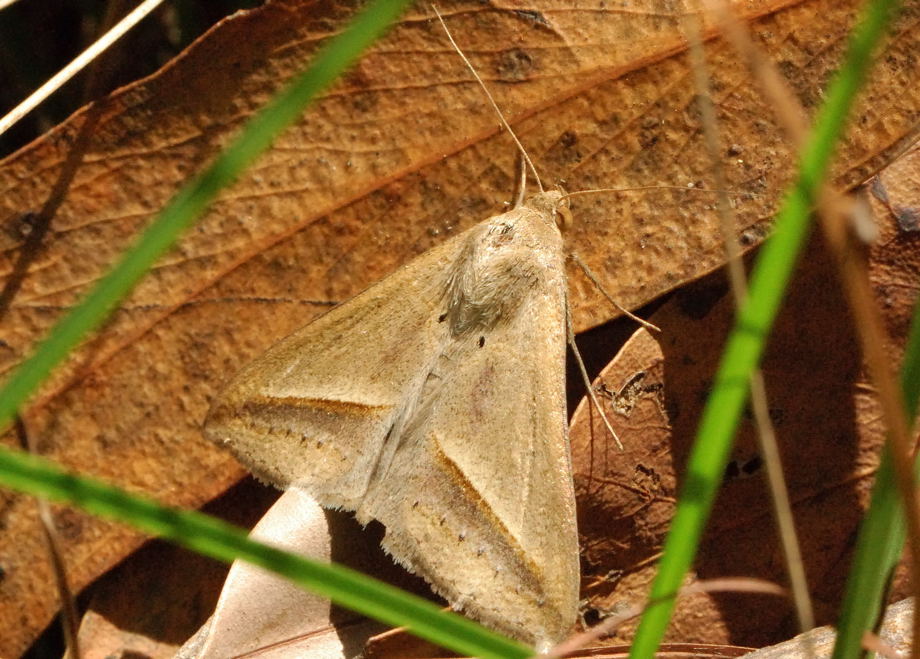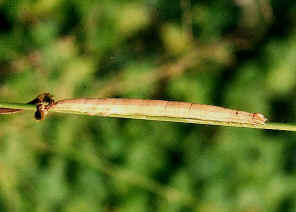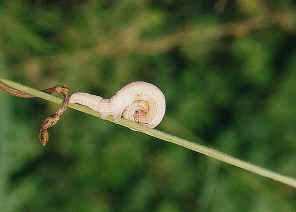Sugarcane Looper - Mocis frugalis
Family Noctuidae, subfamily CATOCALINAE
This page contains pictures and information about Sugarcane Looper Moths that we found in the Brisbane area, Queensland, Australia.

- Wingspan 40mm
- This moth is pale brown in colour with diagonal brown/creamy line across wings.


- When we walked across the Eucalyptus forests in Brisbane, we often saw many of these moths. They hide among the grasses on the forest floor. When disturbed, they flied to a meter away, and hind again in the grasses.


- Length 50mm
- Their caterpillars are pale green or brown in colour, feed on various grasses and sometimes Sugarcane. They move in looper fashion. They make cocoon and pupate between leaves. We found this caterpillar on grass stem, not exactly sure if this is the caterpillar of this species, anyway it looks very close.
- Reference:
- 1. Moths of Australia - Ian F.B.Common, Melbourne University Press, 1990, p452, fig47.4.
- 2. Mocis frugalis Fabricius, 1775 - Australian Caterpillars, by Don Herbison-Evans & Stella Crossley, 2008.
- Back to Top
